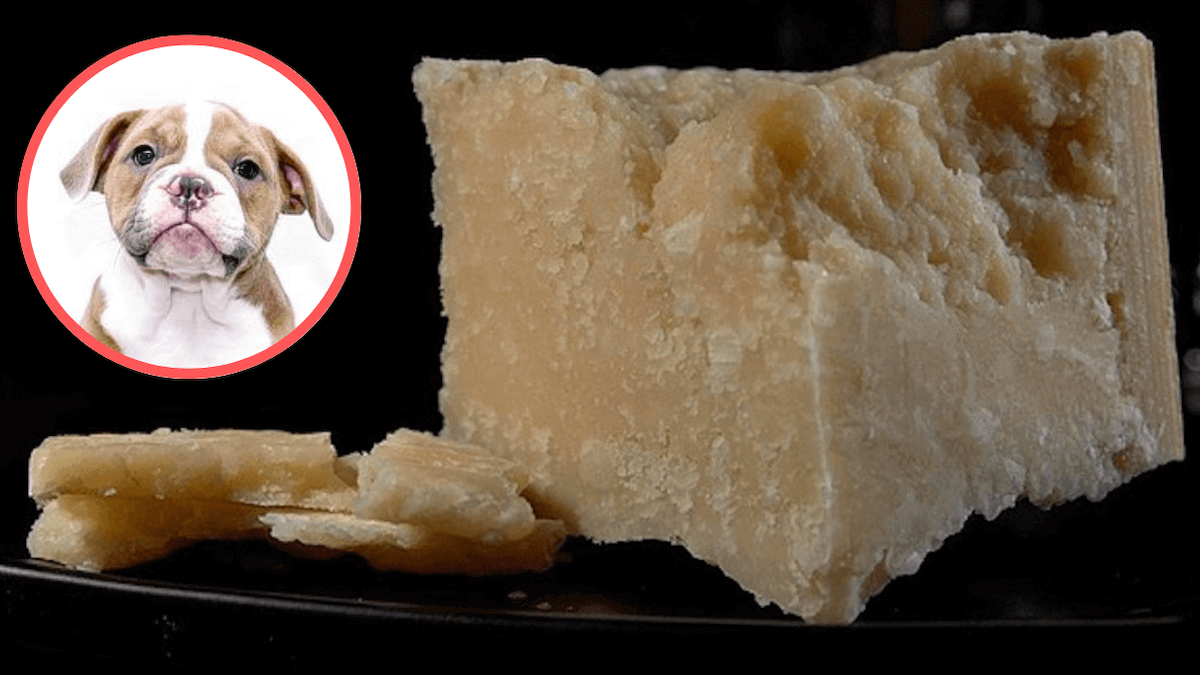Some cheeses cannot be missing on the tables of us Italians. But does the same apply to Fido’s bowl? You can give the parmesan for dogs?
Today we try to answer this question and find out what effect cheeses can have on our faithful four-legged friend.
What cheese is it?
Parmesan is a hard and aged cheese originally from Reggio Emilia.
It is a hard cheese, which means it is low in lactose, unlike softer cheeses such as mozzarella. It’s also a ripened cheese (sometimes up to 12 months), which means it’s higher in sodium than unripened cheeses.
Can Dogs Eat Parmesan?
The answer to this question is not simple for several reasons. In general the parmesan in small doses and once in a while it can be given to Fido, for example grated on his food it can encourage him to eat.
Most dogs are lactose intolerant when ingested in large quantities. THE dogs do not possess the lactase enzyme, needed to break down lactose, milk sugar. A healthy dog can tolerate up to 2 g of lactose per kg of body weight.
As aged Parmesan has very low lactose percentages, which is why it shouldn’t cause problems for the furbaby. At the same time, however, it is a food rich in sodium (salt) which is not beneficial for the health of our four-legged friend. Furthermore, when you buy it already grated, the package may contain preservatives that can be harmful to your pet.
How is Parmesan cheese bad for dogs?
Thanks to its low lactose content, Parmesan can be eaten by four-legged friends in moderation. In large portions, however, the dog can be subject to e gastrointestinal disorders.
If your dog is intolerant to Parmesan, you may notice one of the following symptoms:
- He retched;
- Diarrhea;
- Lethargy;
- Muscle spasms;
- Temperature;
- Swelling;
- Lack of appetite;
- Flatulence.
What to do if the dog eats parmesan?
If Fido eats Parmesan, you must first determine how much he ingested.
If he has eaten a large amount of it (relative to the size of the dog), it is recommended that you call your vet to determine if you need to monitor for symptoms.
Parmesan peel for dogs: can you give the crust?
As far as the crust is concerned, however, there are no contraindications. You can give it to the dog after making sure that is not moldy and does not contain artificial dyes, resins or waxes.
The crusts contain fat, vitamins and calcium, making them an excellent addition to our four-legged friend’s diet. Of course, even in this case one should not exaggerate.
If the dog is overweight, the administration of fats other than the diet prescribed by the veterinarian is not recommended.
Cheeses that are bad for dogs
In general, one should avoid offering the dog i cheeses that are too fresh and high in fat. It’s also important to keep all flavored types (herbal for example) aside.
Some veterinarians suggest enticing animals to take medicines by placing them inside a small piece of cheese. Ask the specialist for advice on the type of cheese to choose for this type of operation.
What cheese to feed the dog?
Aged cheeses such as cheddar, parmesan and gruyere contain very little lactose and therefore shouldn’t cause any stomach upset in your dog. However, this also depends on the specimen and the quantity of cheese that is given to it during the day.
If you notice that Fido suffers from aerophagia after eating cheese, you may need to find an alternative to this food.
In general, cheese is not recommended in a dog’s diet. It is advisable to opt for healthy and safe snacks, for example in the form of fruit or vegetables suitable for him. But if you still want to offer your dog some cheese, remember to lend attention to the choice of the product and the dose administered. If the animal is overweight, giving it cheese could make the situation worse.

